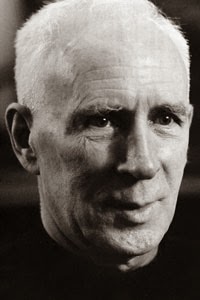Ed Feser's recent post, Natural Law or Supernatural Law, continues his tendency to regard de Lubac as a kind of arch-enemy. The accusation, which he has raised before, is that de Lubac tends to absorb the natural into the supernatural, abolishing the distinctions between the two.
There seems to me little resemblance between the portrait of de Lubac that Feser sketches and de Lubac himself. De Lubac strongly distinguished between the natural and supernatural orders. Take his brief Catechesis on Nature and Grace (Ignatius Press 1984). De Lubac states that the "supernatural remains forever unnaturalizable ...," it is "that divine element which man's effort cannot reach (no self-divinization!) ...." (41). Or again, "between our human nature and our destiny [i.e., the supernatural] there lies an 'infinite disproportion.'" (32) Over and over again, de Lubac emphasized this "infinite disproportion" between the orders of nature and the supernatural.


